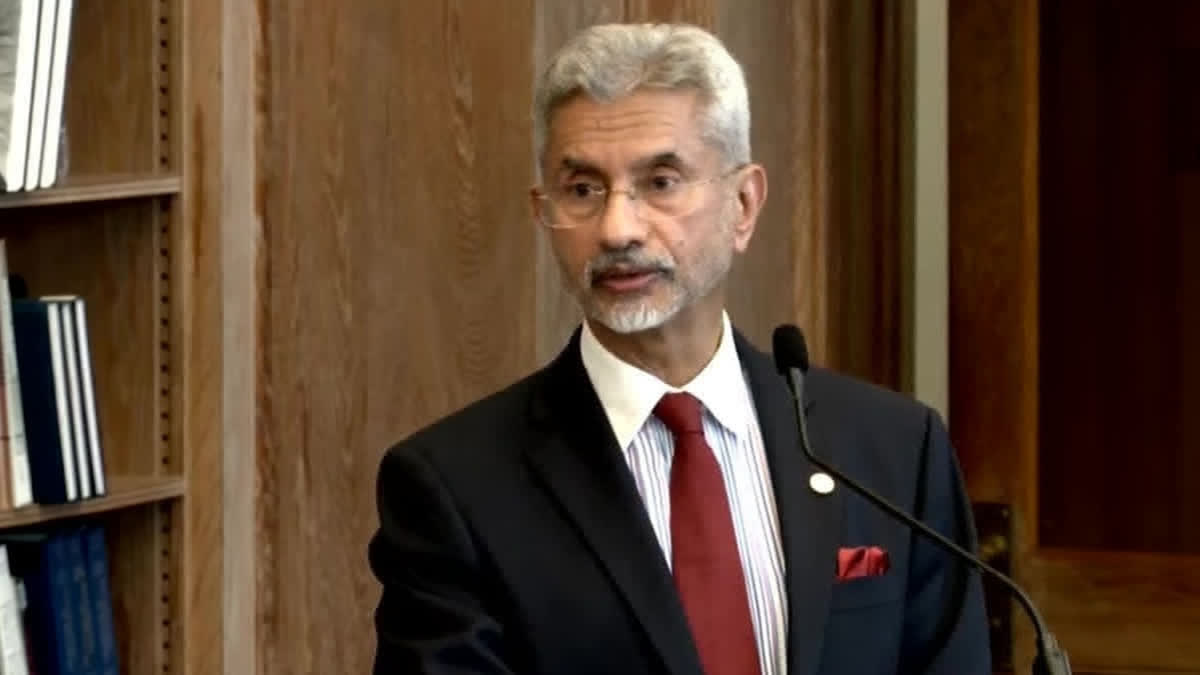New Delhi: External Affairs Minister Jaishankar and the Iranian Foreign Minister, Dr Amir-Abdollahian, on Monday discussed the escalating tension in West Asia and both sides called for the prevention of further escalation of violence and hostilities.
This comes amid Yemen's Houthi militants attack in the Red Sea. The Houthis have been attacking commercial vessels to put pressure on Israel after the Gaza war began. During such an attack, several ships bound for India have also come under attack. As regional connectivity has been a critical pillar of India-Iran relations, it was naturally prominent in the agenda of today's discussions between the two ministers.
Jaishankar reiterated India's interest in benefiting from Iran's unique geographical position to access markets in Central Asia, Afghanistan and Eurasia. Both Foreign Ministers discussed the prospects of energising the International North-South Transport Corridor.
In particular, India-Iran discussed India's involvement in the development and operation of the Chabahar port, a joint project with a joint vision of connectivity. External Affairs Minister Jaishankar emphasised India's commitment to this project and discussed how both sides can establish a firm, sustainable, and long-term roadmap, for India's continued involvement over the coming years.
Both sides also exchanged perspectives and assessments on certain regional and global issues and developments. Meanwhile, India and Iran's Foreign Ministers expressed concern about the recent events in West Asia and emphasised the importance of preventing further escalation of violence and hostilities.
Jaishankar noted that India has a long-standing and uncompromising position against terrorism in all forms and manifestations. "This remains so very much. At the same time, we strongly believe that it is imperative to avoid loss of civilian life in any conflict situation," he told his Iranian counterpart in today's meeting.
The situation in Gaza was also discussed and the primary focus was on the loss of civilian lives, especially that of women and children. Noting that there is a visible humanitarian crisis that needs to be addressed and the creation of sustainable humanitarian corridors is the need of the day, both India, and Iran welcomed the international community’s efforts in that direction.
India itself has delivered shipments of relief material to Gaza and contributed to the UNRWA. On the issue of Palestine, India reiterated its long-standing support for a two-state solution, where the Palestinian people can live freely in an independent country within secure borders.
The EAM further stressed the need for all parties to avoid provocative and escalatory actions, and to facilitate movement towards dialogue and diplomacy. It is pertinent that Jaishankar's visit also saw the decision to include Farsi as one of the nine classical languages of India in the New Education Policy.
Jaishankar is currently on an official visit to Tehran and his visit is seen as a crucial one as it is taking place at a time when tension has been escalating in the Middle East following the Gaza war. The recent attacks by Houthis have become a concern for India. The Red Sea remains a significant trade route for India as goods shipped to the US East Coast, Europe, and Middle East pass through it.
- " class="align-text-top noRightClick twitterSection" data="">
Read more: EAM Jaishankar meets Iranian Urban Minister in Tehran, finalises agreement on Chabahar port



